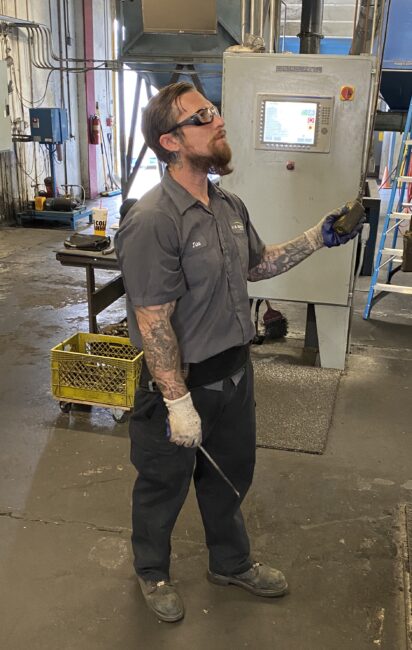
Hiring individuals who were formerly incarcerated can offer significant benefits for both employers and society in general. Those who are considering second chance hiring should be aware of these benefits as they make their decision about whether to proceed with the process.
Nancy Lambert, who served as the human resources manager/psychiatric rehabilitation counselor of a manufacturing company, has some advice for them.
The benefits that her former employer discovered in hiring individuals who were previously incarcerated, include employees who can offer:
- Transferable skills: Formerly incarcerated individuals often possess a wide range of skills developed both before and during their time in prison. Many have learned valuable vocational skills or gained experience in various industries during their incarceration. Employers can tap into this diverse skillset and bring in employees with unique perspectives and backgrounds.
- A strong work ethic: Many formerly incarcerated individuals are highly motivated to rebuild their lives and establish a stable future. They often exhibit a strong work ethic and determination to succeed in their professional endeavors, making them dedicated and reliable employees.
- Loyalty and commitment: Hiring individuals who have faced significant challenges in their lives and are given a second chance can foster a sense of loyalty and commitment in the workplace. These employees may deeply appreciate the opportunity they have been given and are more likely to be loyal to the company.
Companies can gain other benefits, including:
- Increased diversity and inclusivity: Embracing diversity is not only a moral imperative but also a business advantage. Hiring from a diverse pool of candidates, including formerly incarcerated individuals, can lead to a more inclusive workplace that values different perspectives and experiences.
- Enhanced corporate social responsibility: Companies that actively support the reintegration of formerly incarcerated individuals demonstrate a commitment to social responsibility. Such initiatives can enhance the company’s reputation and positively impact the community.
- Federal and local financial incentives: In some regions, there are tax credits, incentives or subsidies for hiring individuals who are formerly incarcerated, encouraging employers to consider this talent pool.
- Skill development and training opportunities: Investing in the training and skill development of formerly incarcerated employees can yield long-term benefits. Many of these individuals are eager to learn and grow professionally, and with adequate support, they can become valuable assets to the organization.
- Positive impact on recidivism: Stable employment is one of the key factors in reducing recidivism rates. By providing job opportunities to formerly incarcerated individuals, employers play a crucial role in helping them reintegrate into society successfully and reducing the likelihood of them returning to prison.
- Ability to solve talent shortages: In industries facing talent shortages, employers may find untapped potential in hiring from this candidate pool. Formerly incarcerated individuals can fill gaps in the labor market and contribute to the company’s growth and success.
- Ultimately, hiring and working with formerly incarcerated individuals not only benefits the individuals themselves but also contributes to a more diverse, inclusive and socially responsible workplace. By recognizing the potential of these candidates and providing them with opportunities for rehabilitation and growth, employers can make a positive impact on their lives and the community.

